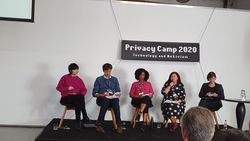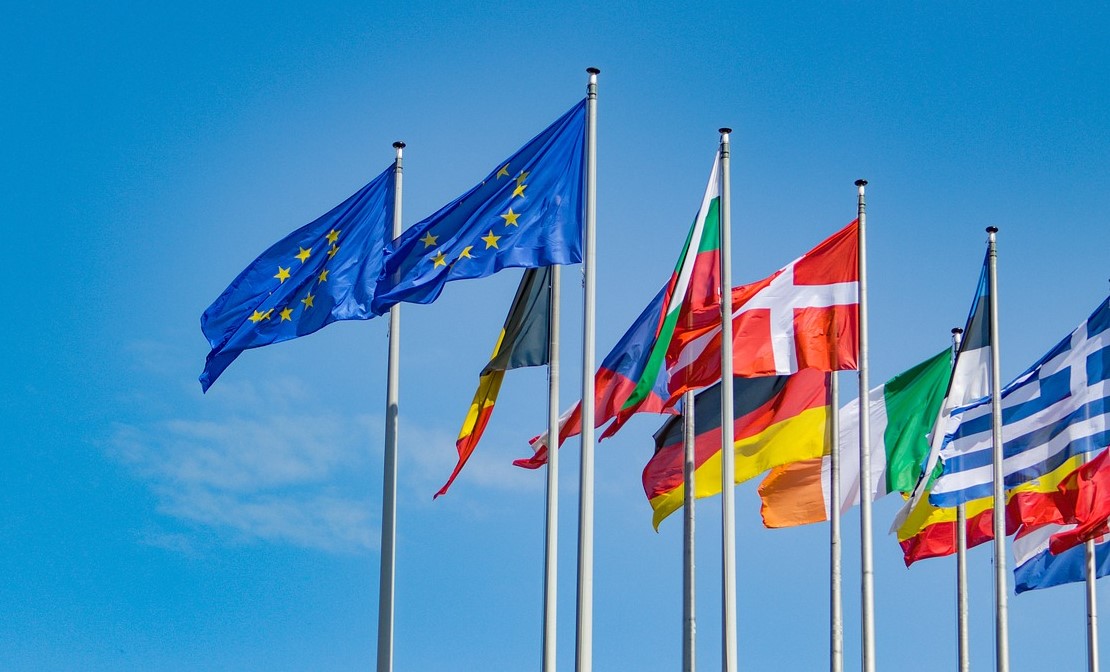Bringing children’s rights perspective to the digital environment
A gathering in Brussels focused on children's rights to privacy in the face of rapidly expanding technology.
There is much debate on the impact of technology and in particular, social media on children. Intergovernmental organisations, including the UN and the Council of Europe are in midst of determining guidelines on children's rights in relation to the digital environment. As technology evolves faster than ever before, digital rights activists gathered in Brussels earlier this week for a Privacy Camp on technology and activism.
This year, the Privacy Camp, a gathering organised by European Digital Rights association in Brussels brought attention to children’s right to privacy, not only as users of digital services but as activists of today.
Sharing their stories of activism, two young volunteer activists from Fridays for Future Germany shared their approaches to gather children’s support for their strikes to demand government action against climate change. The Fridays for Future young activists raised the challenges of moderating chat groups, removing hate speech, pornography and other dangerous content for children to focus on mobilising and activism. Whatsapp, often used by such groups, does not allow filtering of content before it is posted. The activists also raised the concern of police not taking their concerns seriously when reaching out to them for support.
The Fridays for Future movement uses social media, in particular Instagram, to raise awareness and mobilise young people to come onto the streets every Friday. Their use of social media channels raised concerns among present digital activists, who pointed out the limited privacy protections and ignorance of specific needs of children’s rights concerns on such channels.
Surveillance of children
Every child is a potential extremist under school surveillance measures. Police are monitoring #FridaysForFuture climate protests. Children’s data is massively being collected and used for profiling purposes. Climate activists are being put in preventive detention. In this context, the panel offered examples of situations where children’s surveillance is leaving chilling effects on children and families. In the UK, a programme set to counter violent extremism was use of keywords by children in schools and reporting them to authorities. Over 20,000 keywords could alert authorities, despite children and families having no such awareness of this programme of surveillance. As a result, children searching for toy guns were being brought to authorities. Or another child searching for ‘black rhinos’ was believed to be interested in gangs. The data gathered on these children were even registered in the criminal intelligence database.
In another instance, the data on the UK national register of pupils were being shared with the Home Office to identify foreign families and undocumented families. Liberty, a UK based human rights organisation ran an awareness campaign among students and families to empower them to refuse to complete such surveys, something they were not made aware of. The lack of definitions and transparency around such programmes showed the illegality of such actions and the dangers of how children’s data can be misused to great disadvantage to them and their families. Jen Persson, Director of DefendDigitalMe urges civil society actors to start questioning schools on the collection, storage, processing of children’s data. She also pointed out the commercial interests of software companies gathering such data and using it to monitor and assess behaviour.
Gloria Gonzalez Fuster, Research Professor at VUB Brussels, reminded the digital activists in the room that they cannot claim to be activists for privacy and data rights for all, if they don’t also fight for children’s rights as data subjects. Right to ask for your own data as a child must be simpler, she added. The urge to protect children as a result of their vulnerability should not lead to greater surveillance.
Article 8 of the EU General Data Protection Regulation addresses the rules of processing data when children are data subjects and the need for parental consent. Professor Fuster pointed out that companies are avoiding engagement with these rules by claiming that their originally child focused products are meant for adults.
With video cameras being installed in schools (eg. in Italy, UK and other countries) and growing interests in use of facial recognition, there is often no or limited consideration of children’s rights as data subjects and implications on their mental health (peer shaming, etc.). For this reason, more research is needed in this field to ensure technology is regulated to ensure children’s rights are upheld.
Digital resilience of civil society
There were other panel discussions on topics ranging from digital resilience of civil society in the face of attacks from individuals and authoritarian governments to the situation of journalism in south east Europe. These sessions raised the need to prioritise sharing knowledge and tools among civil society to be prepared to deal with digital restrictions, attacks and slowdowns aimed to limit civil society. The gender dimension was also raised, as women and girls are seen to be more at risk of online attacks.
Background resources:





